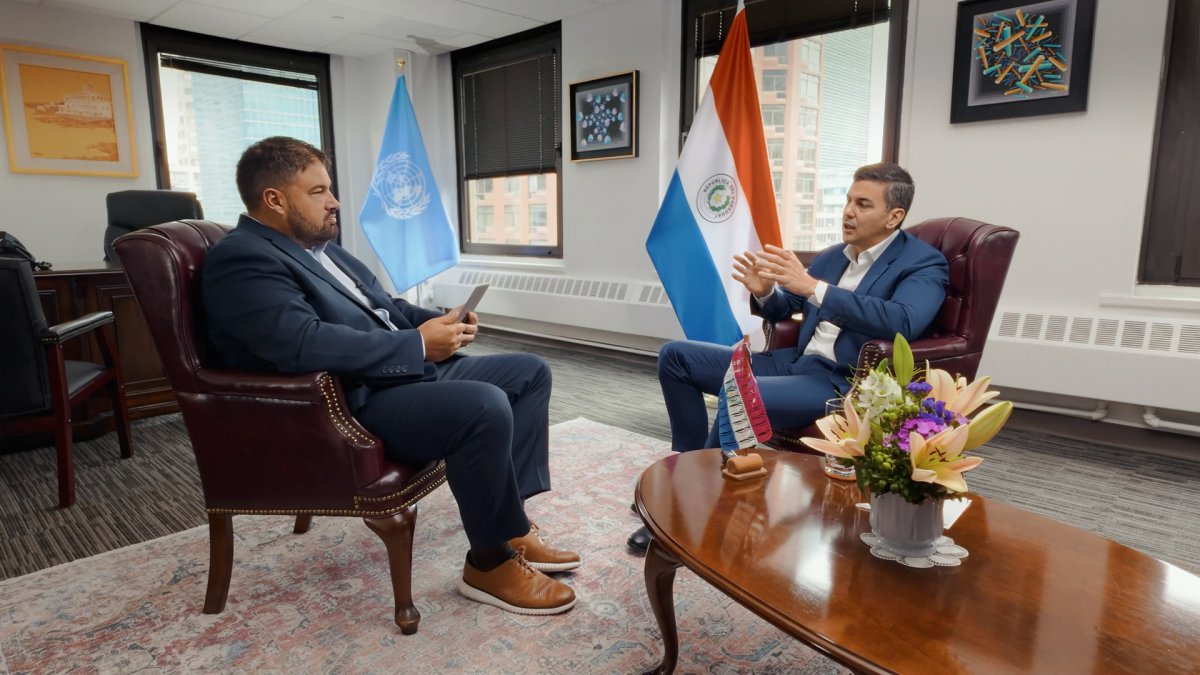Paraguay Is Transforming Into the Silicon Valley of South America
Paraguay, a relatively large South American country roughly the same size as the U.S. state of California, has historically been overshadowed by its larger and more well-known next-door neighbors, Argentina and Brazil.
But all that’s about to change.
This landlocked nation of 6 million people, often confused with the similarly sounding Uruguay, is about to become the Silicon Valley of South America.
As the largest net exporter of clean energy in the world—99.9 percent of its electricity generation has zero carbon dioxide emissions—Paraguay has found itself in a key position as the tech world continues to seek sources of abundant, cheap, and clean energy needed to power the massive processing requirements of artificial intelligence (AI).
Paraguay’s Itaipú and Yacyretá hydroelectric dams, shared with Brazil and Argentina respectively, generate vast amounts of renewable energy, the majority of which is exported for profit to its larger neighbors. And all this relatively low cost, renewable power is attracting the attention of the world’s AI heavyweights, namely Alphabet, Meta, Nvidia, and OpenAI, among others, with several already making major investments in the country.
Newsweek recently sat down with Paraguay’s President Santiago Peña, while he was in New York City, to talk about his country’s emerging role as a player in AI.
Courtesy of Motionette
“I have visited San Francisco, the headquarters of all the Big Tech companies, and we’re talking with [Google, OpenAI, and others]. We are also partnering with Taiwan [about developing] semiconductor and microchip production capacity; we are aiming to make Paraguay the technological hub for the region and the world … leveraging our cheap electricity,” said Peña, who, at age 45, is one of Latin America’s youngest heads of state.
But Paraguay’s emergence onto the global tech scene isn’t solely attributed to its massive power generation capability. The country’s public sector has also undergone significant economic and institutional reforms which have made it highly attractive to international investors. Inflation has hovered in the 4 percent a year range. Its 10 percent across-the-board flat tax on VAT, as well as personal and corporate income, has been lauded by corporate tax specialists worldwide. And a host of other legal reforms, coupled with robust legal protections for foreign capital, have made the country an increasingly desirable target for foreign investment across many sectors.
And Wall Street agrees.

Courtesy of Motionette
Just a few months ago, Moody’s upgraded Paraguay’s credit rating to investment grade, citing its “robust and sustained economic growth and our expectations that the economy has become more resilient to shocks, and a track-record of institutional reforms.”
And with a young—the average age is only 26—and a largely digital-native workforce, the country seemingly has all the raw materials to quickly become South America’s tech hub.
While Paraguay might be on the lips of tech execs in Silicon Valley and East Asia, the country still has a lot of work to do in terms of telling its story to the rest of the world—something which President Peña is fully aware. “There is a gap between reality and perception, and we need to close that gap … we need to do more marketing,” he said.
Newsweek spoke to several place branding experts who agreed that Paraguay has a lot of ground to make up in terms of storytelling and narrative building if it wants to harness and fully realize all the potential of the growing interest in the country. “Nine out of 10 American CEOs still can’t point out Paraguay on global political map,” said Patrick Milan, a veteran marketer who has led global campaigns for the Bahamas, BMW, the PGA, and a host of other marquee brands.
“[Paraguay] has a great emerging tech story, but they also have a strong agricultural story, a regional integration story. There is a lot there,” Milan said. “President Peña is a dynamic marketer and a terrific messenger for the country but there is only so much one man can do. Plus, he has a country to run. Paraguay needs to embrace the idea of nation branding much like other small energy-exporters such as Qatar and the Emirates have done so successfully over the past 20-plus years.”
During our interview, President Peña mentioned that Paraguay is “the small Qatar of clean, renewable energy. We move 100 percent of our economy on renewable energy.”
Perhaps Peña is already envisioning the Gulf States as the perfect model for promoting his country’s strengths on the global stage.
But he’d better move fast.
Arick Wierson is a six-time Emmy Award-winning television producer.
The views expressed in this article are the writer’s own.

